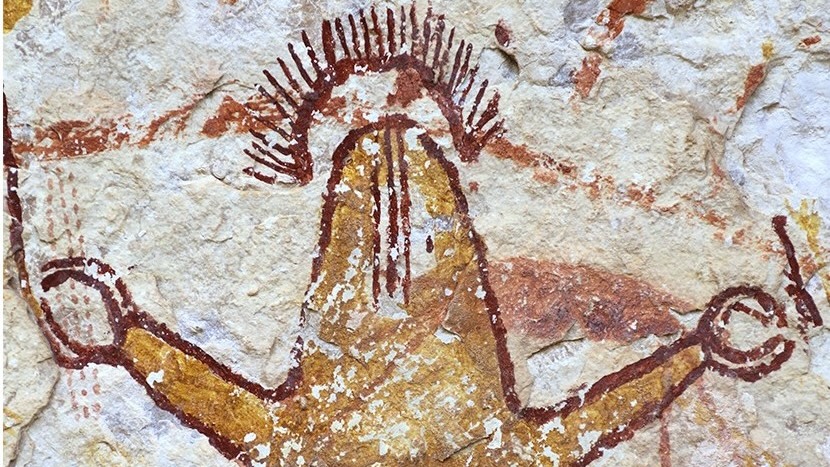How Do I Love Thee? Experts Count 8 Ways
What is love?

While the rest of us trade pink teddy bears and chocolate hearts, some scientists are putting love under the microscope – and the magnetic resonance imaging machine. But what is it they are studying, anyway?
For this Valentine's Day, LiveScience decided to ask the experts a question once left to early-'90s chart-topping dance hits: What is love?
Here's what they said.
An all-encompassing thirst

Lucy Brown, neuroscientist at the Albert Einstein College of Medicine:
What is romantic love? When it is present, it is like thirst: There is no denying it. When we are in the early stages of romantic love, our thinking and our plans for the day are dominated by it. Although we as individuals differ in our expression of romantic love by being clingy or distant or supportive toward a partner, love can make us all euphoric at times, and driven toward one person. The world becomes magical and the presence of the beloved makes it so.
"Driven toward one person" is the key phrase for me, as a neuroscientist. "Euphoric" is an important word, too. Functional MRI studies show that primitive neural systems underlying drive, reward recognition and euphoria are active in almost everyone when they look at the face of their beloved and think loving thoughts. This puts romantic love in the company of survival systems, like those that make us hungry or thirsty. I think of romantic love as part of the human reproductive strategy. It helps us form pair-bonds, which help us survive. We were built to experience the magic of love and to be driven toward another.
Someone camping in your head

Helen Fisher, biological anthropologist at Rutgers University and chief scientific adviser for Match.com:
Get the world’s most fascinating discoveries delivered straight to your inbox.
Love is many things to many people, but I think there are three basic types of love: sex drive; romantic love; and feelings of deep attachment for a partner.
I study the brain. My colleagues and I have put over 60 men and women ages 18 to 57 in a brain scanner (fMRI) to study the brain circuitry of romantic love. So with Valentine's Day here, let's talk about the basic feelings of romantic love. The first thing that happens when you fall in love is that someone takes on what I call "special meaning." Everything about him or her becomes unique. Their car is different from every other car in the parking lot; the street he lives on; the music she likes: it's all special and unique. Some reach this stage much more quickly than others. In fact, in a national survey of U.S. singles I recently worked on with Match.com, we found that 54 percent of men and 44 percent of woman said they have experienced love at first sight.
Once there, you then begin to focus on him or her -- often to the detriment of all around you. The lover is elated when things are going well and suffers from mood swings into terrible despair when their beloved doesn't write or call. Lovers feel intense energy as well as all sorts of physical symptoms, such as a pounding heart, sweaty palms or butterflies in the stomach — the "sweaty palm syndrome." Most are terribly sexually possessive, too — known to animal behaviorists as "mate guarding." But there are three basic traits of romantic love; foremost is intense craving for emotional connection with the beloved. The lover craves to hear those precious words, "I love you." Besotted men and women are also highly motivated to win the beloved. And perhaps most indicative of this state, lovers think obsessively about the beloved. Someone is camping in their head. Many of these symptoms of romantic love are caused by a rise in dopamine in the brain, coursing through primitive brain networks associated with wanting craving, energy, elation and motivation.
This knowledge has led me to conclude that romantic love is a primitive reproductive drive that evolved to enable our forebears (and ourselves) to focus our mating energy on a particular individual and begin the mating process. Of all the philosophers and poets that have described romantic love (and there are many), perhaps Plato described this state the best. He wrote, "The god of love lives in a state of need." Romantic love is a need, a craving, a homeostatic imbalance, a drive to win life's greatest prize: a mating partner.
The glue in the social safety net

Daniel Kruger, evolutionary psychologist at the University of Michigan:
Love is an experience that promotes bonding and commitment with others, encouraging stable relationships that ultimately help facilitate our own reproductive success. Without these experiences, we might be more likely to act in our own short-term self-interest, with detrimental consequences for cooperative social relationships.
The love we feel for our family and friends helps create a social safety net. The love we feel for our romantic partners, including shifts in the different types of love experienced, helps the development and maintenance of a reproductive partnership. This system appears to be designed to generally last until shared offspring no longer require constant parental care. An understanding of this systematic design does not detract from the intensity or reality of these experiences.
A caring urge

David B. Givens, anthropologist and director of the Center for Nonverbal Studies in Spokane, Wash.:
Love is an emotion, a powerful feeling of affection, devotion and fondness for a person, place or thing. Love can be an intense feeling of attachment to a family member, especially to a baby or young child. It can also be a strong desire to be near a person who is the object of sexual passion. Love evolved from paleocircuits of the mammalian brain (specifically, from modules of the cingulate gyrus) designed for the care, feeding and grooming of offspring. As such, there is a strong tendency to take care of, feed and groom the people (and objects; e.g., automobiles) we love.
A Sexual Match

Luis Garcia, professor of psychology at Rutgers University in Camden, N.J. (not pictured):
There is ample evidence showing that sexuality plays a significant role in romantic relationships. For example, a number of studies have shown that sexual satisfaction and satisfaction with the relationship are correlated with one another. Furthermore, studies have found that having a satisfying sexual life is a characteristic of individuals on successful long-term relationships.
One of my studies, with Dr. Charlotte Markey, on couples who are dating, cohabitating or married, showed that sexuality may play a role in their getting together to begin with. In this study we found that couples tended to be matched in their level of sexual experience prior to their relationship. That is, individuals with relatively high levels of sexual experience tended to pair with others of high levels of sexual experience, and so on.
Furthermore, the more similar the couples were in terms of their prior sexual experience, the higher their satisfaction and commitment to the relationship. We are now in the process of studying lesbian couples to examine the role that sexuality plays in satisfaction with the relationship.
A state of respect

Kate Wachs, psychologist and relationship expert, founder of drkate.com in Chicago, and author of "Relationships for Dummies" (Wiley, 2002):
Love usually includes a very high level of mutual respect; the partners are each other's No. 1 fan. The partners desire the very best for one another, including the very best of themselves. As a result, real love usually includes a high level of honesty, loyalty, trust, emotional support, selfless sharing and friendship. Partners usually experience a healthy sense of "like" for one another; i.e., they appreciate each other as unique, independent entities and feel honored that this other being also seems to enjoy them and their company.
The partners genuinely want to be good for one another, both giving to one another as well as taking from that person to a balanced, healthy degree. Both partners experience a willingness to give and receive emotional support. The lovers look out for one another and strive to protect their partners’ needs, wants and welfare – without being asked to do so. People who love one another generally enjoy each other’s company more than that of others.
The opposite of love is not hate; it is not caring. If you have ever felt in love with someone, then the only way you can lose that love is to lose respect for that person.
A long-lasting connection

Stephanie Ortigue, neuroscientist at Syracuse University:
Love seems a straightforward concept, yet there is no agreed-upon definition of what it is. The definition I use here is based on neuroimaging and psychological studies.
Love is a complex rewarding and motivational mental state of intense longing for union with another. This mental state involves chemical, emotional and cognitive components. Love is more than a basic intense emotion that lasts only a few seconds. Love is a cognitive and emotional mental concept that is mediated by the activation of a specific neural network. As long as the activation of this neural network is maintained, the concept of love can be maintained.
To date, there is no biological evidence that love should have an expiry date by nature. Rather, many different factors may modulate the activation of this love-related neural network. Along these lines, love can be defined as a long-lasting mental concept connecting people across time and space. This definition applies to many different types of love, such as passionate love, companionate love, maternal/paternal love and unconditional love.
A historical constant

Stephanie Coontz, social historian at the Evergreen State University in Olympia, Wash., and author of "A Strange Stirring: The Feminine Mystique and American Women at the Dawn of the 1960s" (Basic Books, 2011):
Romantic love has existed in every culture and time period. But until recently, it was not considered a good basis for courtship and marriage. For thousands of years, most couples married to make advantageous social and business alliances or to expand the family labor force. They either buried their romantic dreams or conducted their romances outside marriage.
In the early 19th century, when love became the main motive for courtship, love was redefined to make it compatible with the unequal roles and options of husbands and wives. Men loved women because they were nurturing and emotional in ways males were discouraged from becoming or even understanding. Women loved men because they were powerful and knowledgeable in ways females were not allowed to be. Each sex supposedly had skills and character traits that the other sex did not possess and could not gain access to except through love. So part of the excitement of romantic love was how foreign one’s partner was.
In today’s world, such feelings are increasingly irrelevant to what makes love last. Our challenge now is to reconcile love with friendship, to make our similarities — not just our differences — sexy.

Stephanie Pappas is a contributing writer for Live Science, covering topics ranging from geoscience to archaeology to the human brain and behavior. She was previously a senior writer for Live Science but is now a freelancer based in Denver, Colorado, and regularly contributes to Scientific American and The Monitor, the monthly magazine of the American Psychological Association. Stephanie received a bachelor's degree in psychology from the University of South Carolina and a graduate certificate in science communication from the University of California, Santa Cruz.
